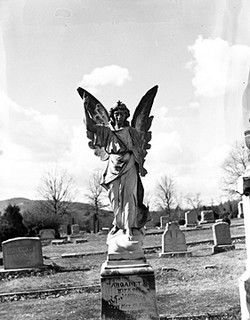
Growing up involves enduring moments of self-recognition that accompany moving through different life stages. Or so I’ve been told. This new knowledge offers an opportunity to draw closer to Jesus. I’ve been going through such a stage over the past month or so, wondering how much the self I have worked to build and project is a reflection of how I truly feel deep down and would like to be seen. Thomas Wolfe’s Of Time and The Rive–whose chest-puffing epigraph, “A Legend of Man’s Hunger in His Youth,” effectively characterizes the frenzied egotism at play in the book (and my attraction to it)–has especially drawn some of these thoughts out. Wolfe’s canny recognition of a manufactured identity’s interplay with the true self and how much choices of friends, phrase and fashion reflect our raw, vulnerable interiors is especially poignant.

A sequel to Look Homeward, Angel, the novel centers on Eugene Gant, the youngest son of a North Carolina family who is struggling to find his place in the world. He goes to Harvard to take a graduate level creative writing class and hopefully become a famous playwright. The glib aphorisms and easy clichés of the sect he finds there end up discouraging his creativity and his vision for communicating beauty and truth through literature. But he makes a few important friends in Boston, one being Frances Starwick. As his name would suggest, Starwick is a big personality – a fact of which he’s well aware. “As they walked along the Charles,” Wolfe writes, “He twirled his elegant light stick with an air of languid insouciance, interrupting his conversation now and then to speak sharply to (his) little dog.” Eugene, with his piercing eyes and strong hands, the inheritance from a powerful stonecutter father, is understandably irritated by these idiosyncrasies from Frances and his aloofness as a friend.
Later on the same walk, the pair bump into a rough and tumble classmate named Ed Horton. He gives Starwick a hard time for his pet and his choice of outfit, clearly bullying him and trying in word and stature to assert some superiority over the funny man. They eventually part ways with him, and Eugene starts in angrily with Starwick about his carelessness as a friend and his failure to divulge any real information about his life outside of school. “Surely to God, Frank, you of all people on earth are not one of those damned, smug, vain, self-centred egotists – who would milk this earth as if it were a great milk cow here solely for their enrichment, and who, at the end, in spite of all their damned, miserable, self-seeking profit for themselves remain nothing but the smug, sterile, misbegotten set of impotent and life-hating bastards that they are,” Eugene rants.
 Starwick, naturally, is taken aback. He expected the overt attempt at domination from Horton, but Eugene’s outburst throws him into a different mental space. His response, in its honesty and consideration for his friend, points to the respect Wolfe and his character maintain for someone reaching toward an organic, honest self in the world. Starwick replies:
Starwick, naturally, is taken aback. He expected the overt attempt at domination from Horton, but Eugene’s outburst throws him into a different mental space. His response, in its honesty and consideration for his friend, points to the respect Wolfe and his character maintain for someone reaching toward an organic, honest self in the world. Starwick replies:
“Each man has his manner – with each it comes for his own reason – Horton’s, so that his hearty voice and robust way may hide the hatred in his eyes, the terror in his heart, the falseness and pretense in his pitiable warped small soul. He has his manner, I have mine – his for concealment, mine for armor, because my native hide was tender and my skin too sensitive to meet the Hortons of the Earth – and somewhere, down below our manner stands the naked man.”
Everyone knows the old playground wisdom that a bully is usually acting out as a result of a troubled home life, yet Starwick’s diagnosis of Horton takes this a step further. He sees terror and despair in him: that he refuses to acknowledge his fears and vulnerabilities and clings instead to his transient virility and crude creative ability.
What sustains Frances meanwhile is his faith in something eternal. Wolfe calls this vision a youthful, exuberant, knowledge of the American landscape as represented by the “Unceasing Mississippi.” Yet, the metaphor has a gospel tinge. The cleansing power of the river, “The great slow river – the dark and secret river of the night – the everlasting flood,” keeps him going. He hopes to spend his life searching after the source of this river, an explanation for its awesome beauty, maybe. “Remembering speechlessly we seek the great forgotten language, the lost lane-end into heaven, a stone, a leaf, an unfound door. Where? When?” The narrator memorably begins in Look Homeward, Angel.
Like Frances and Eugene, I sense that there’s something beyond the ugly, scared mess of the world. Starwick put on his armor of seeming affectation to fend off the world’s fiery arrows, but I am blessed with access to still greater armor. Christ allows for the tender, sensitive skin to be exposed in His presence as well as in honest fellowship with others, unafraid, therefore, of the taunts of the Hortons of the world.

COMMENTS
Leave a Reply












